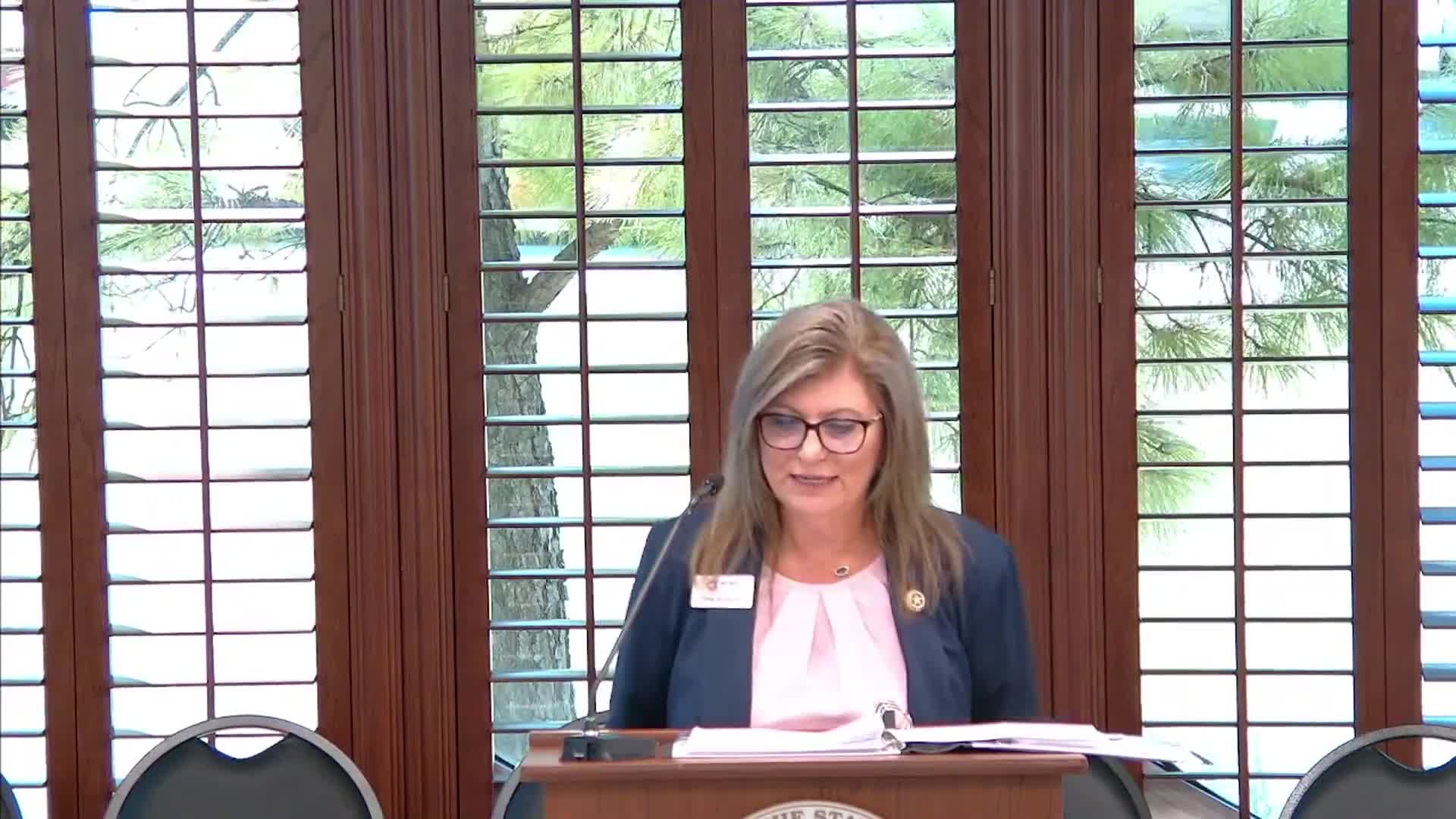Board authorizes wide rulemaking package that includes GI Bill guidance and alternate instructor pathway
October 17, 2025 | CareerTech, Executive, Oklahoma
This article was created by AI summarizing key points discussed. AI makes mistakes, so for full details and context, please refer to the video of the full meeting. Please report any errors so we can fix them. Report an error »

The State Board authorized the Department to begin the formal rulemaking process for proposed amendments across several chapters of the administrative code, covering finance, student aid language, enrollment rules, program definitions and instructor pathways.
Gina (agency legal) and Director Hagan presented the package, explaining the most substantive changes: replacing an outdated travel-claim requirement so agency staff (agency head or designee) approve travel claims rather than routing all claims to the board; broadening "financial aid" wording to encompass federal, state and local awards; and adding a rule implementing a National Guard GI Bill tuition-assistance pathway created by Senate Bill 31. Gina noted the GI Bill rule reflects a statutory partnership with the Oklahoma Military Department and would create a revolving fund; the statute authorized a process but did not appropriate funds for the program. "This is not funded," Gina said of the GI Bill revolving fund, and added the rule clarifies agency and military roles for verifying applications prior to student enrollment.
The board also approved rules that streamline enrollment criteria language, allow approved agriculture education at lower grade levels, clarify student-organization (CTSO) requirements for funded programs and add an industry-certification specialist instructor pathway for technology centers. The alternate instructor pathway — enacted in legislation last year and previously adopted under an emergency rule — permits an instructor without a degree to teach in a technology center if the individual has a GED, 4,000 hours of relevant industry experience, an approved industry credential and completion of the required professional-development sequence. Gina said the pathway was intended to help rural programs that cannot recruit traditionally credentialed teachers.
Board members asked how higher-education credit and perceptions of instructor qualifications would be addressed; Gina and Director Hagan said outcomes and credentialing will guide equivalency, and they noted HLC (regional accreditor) has moved toward recognizing industry credentials in some contexts.
The board voted to authorize agency staff, in consultation with counsel, to publish notices of rulemaking intent and proceed with the formal rule process.
Gina (agency legal) and Director Hagan presented the package, explaining the most substantive changes: replacing an outdated travel-claim requirement so agency staff (agency head or designee) approve travel claims rather than routing all claims to the board; broadening "financial aid" wording to encompass federal, state and local awards; and adding a rule implementing a National Guard GI Bill tuition-assistance pathway created by Senate Bill 31. Gina noted the GI Bill rule reflects a statutory partnership with the Oklahoma Military Department and would create a revolving fund; the statute authorized a process but did not appropriate funds for the program. "This is not funded," Gina said of the GI Bill revolving fund, and added the rule clarifies agency and military roles for verifying applications prior to student enrollment.
The board also approved rules that streamline enrollment criteria language, allow approved agriculture education at lower grade levels, clarify student-organization (CTSO) requirements for funded programs and add an industry-certification specialist instructor pathway for technology centers. The alternate instructor pathway — enacted in legislation last year and previously adopted under an emergency rule — permits an instructor without a degree to teach in a technology center if the individual has a GED, 4,000 hours of relevant industry experience, an approved industry credential and completion of the required professional-development sequence. Gina said the pathway was intended to help rural programs that cannot recruit traditionally credentialed teachers.
Board members asked how higher-education credit and perceptions of instructor qualifications would be addressed; Gina and Director Hagan said outcomes and credentialing will guide equivalency, and they noted HLC (regional accreditor) has moved toward recognizing industry credentials in some contexts.
The board voted to authorize agency staff, in consultation with counsel, to publish notices of rulemaking intent and proceed with the formal rule process.
View full meeting
This article is based on a recent meeting—watch the full video and explore the complete transcript for deeper insights into the discussion.
View full meeting
